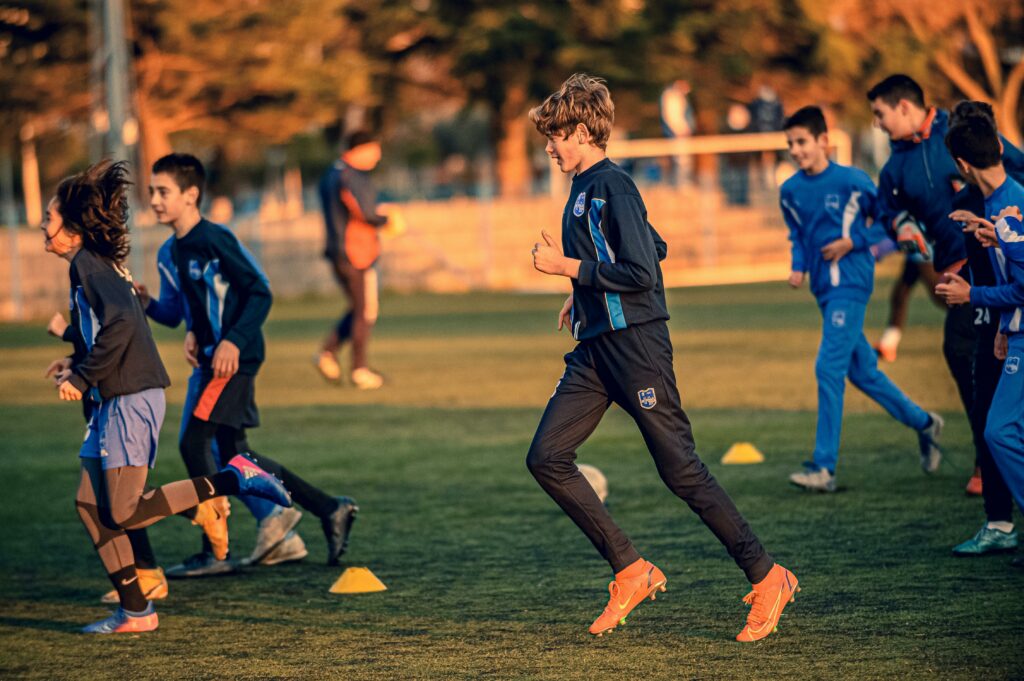Winning and losing can have profound effects on hormonal levels in the body, influencing various neurotransmitters and hormones that regulate mood, stress, and motivation.
Ever wondered why winning a game sends you on cloud nine, while losing leaves you feeling drained? 🤔
Winning isn’t just about scoring points, it’s a biochemical jackpot! When young athletes triumph, their bodies release a surge of feel-good hormones like dopamine and endorphins. Imagine that adrenaline rush after securing a victory—talk about a natural high! These hormones not only boost mood but also enhance focus and motivation, driving athletes to perform even better next time!
But what about losing? 🥺 Unfortunately, defeat triggers a different hormonal response. Cortisol, the stress hormone, floods the body, leading to feelings of disappointment and even physical exhaustion. It’s like a rollercoaster ride from the euphoria of victory to the lows of defeat, all dictated by our body’s chemical reactions.
Let’s recap:
🏆Winning:
- Endorphins: winning triggers the release of endorphins, which are natural painkillers produced by the brain. Endorphins induce feelings of pleasure and euphoria, creating a « runner’s high » sensation that accompanies success,
- Dopamine: winning also stimulates the release of dopamine, often referred to as the « reward » neurotransmitter. Dopamine plays a key role in motivation and reinforcement, contributing to feelings of pleasure, satisfaction and anticipation of future rewards,
- Testosterone: winning can lead to a temporary increase in testosterone levels, particularly in competitive situations. Testosterone is associated with confidence, assertiveness and dominance and its surge after a victory may boost feelings of self-assurance and readiness for future challenges.
😔Losing:
- Cortisol: losing can trigger the release of cortisol, often dubbed the « stress hormone. » Cortisol levels rise in response to stressors, helping the body mobilize energy reserves to cope with perceived threats. Increased cortisol levels can contribute to feelings of anxiety, frustration and physiological arousal associated with defeat,
- Serotonin: Losing may also affect serotonin levels, a neurotransmitter involved in mood regulation and emotional well-being. Serotonin levels may decrease following a loss, leading to feelings of sadness, disappointment and decreased motivation,
- Oxytocin: interestingly, losing can sometimes stimulate the release of oxytocin, often referred to as the « bonding hormone. » Oxytocin promotes social bonding and affiliation, encouraging individuals to seek comfort and support from others after experiencing setbacks.
Now, let’s throw in the teenage factor. Adolescence is already a hormonal whirlwind, with fluctuating levels of hormones like estrogen, testosterone and growth hormone. When you add the emotional rollercoaster of sports wins and losses, it’s like pouring gasoline on a fire!
So, how can young athletes try to manage these hormonal fluctuations? The key is resilience and self-awareness. By recognizing the impact of wins and losses on their body and mind, athletes can develop coping strategies. Whether it’s mindfulness techniques, deep breathing exercises or seeking support from coaches, parents and teammates, there are plenty of ways to navigate these hormonal waves.
In fact, learning to harness these hormonal shifts can be a game-changer! By understanding how winning and losing affect their body, young athletes can leverage these changes to fuel their growth and development.
It’s all about turning adversity into opportunity and emerging stronger on the other side!
Adolescence is a period marked by a rollercoaster of emotions, both within and outside the realm of sports. It’s not uncommon for young athletes to feel overwhelmed or even thinking about quitting their favorite sport during this time. Years of hard training may not always yield the expected rewards yet! (a situation experienced by many famous athletes at certain points in their careers). Additionally, the unstable hormonal changes characteristic of adolescence can further exacerbate these challenges.
Therefore, acquiring coping strategies from a young age is invaluable, as they can provide essential support and yield positive results during this critical period of development!
#youngathletes #hormonalchanges #adolescence #sportspsychology #mentalhealth #athleticdevelopment #adolescentdevelopment #competitionstress #performanceanxiety

